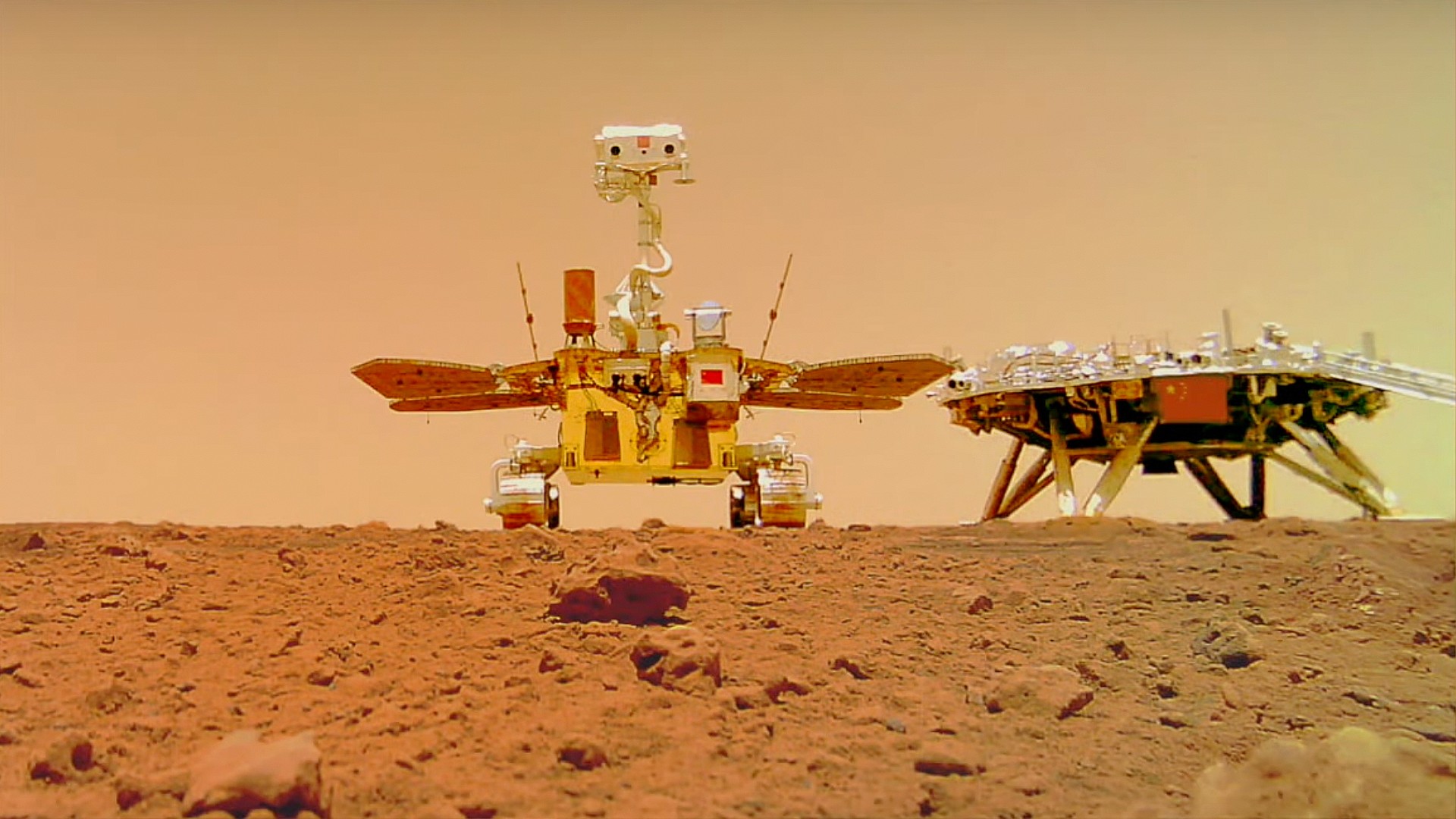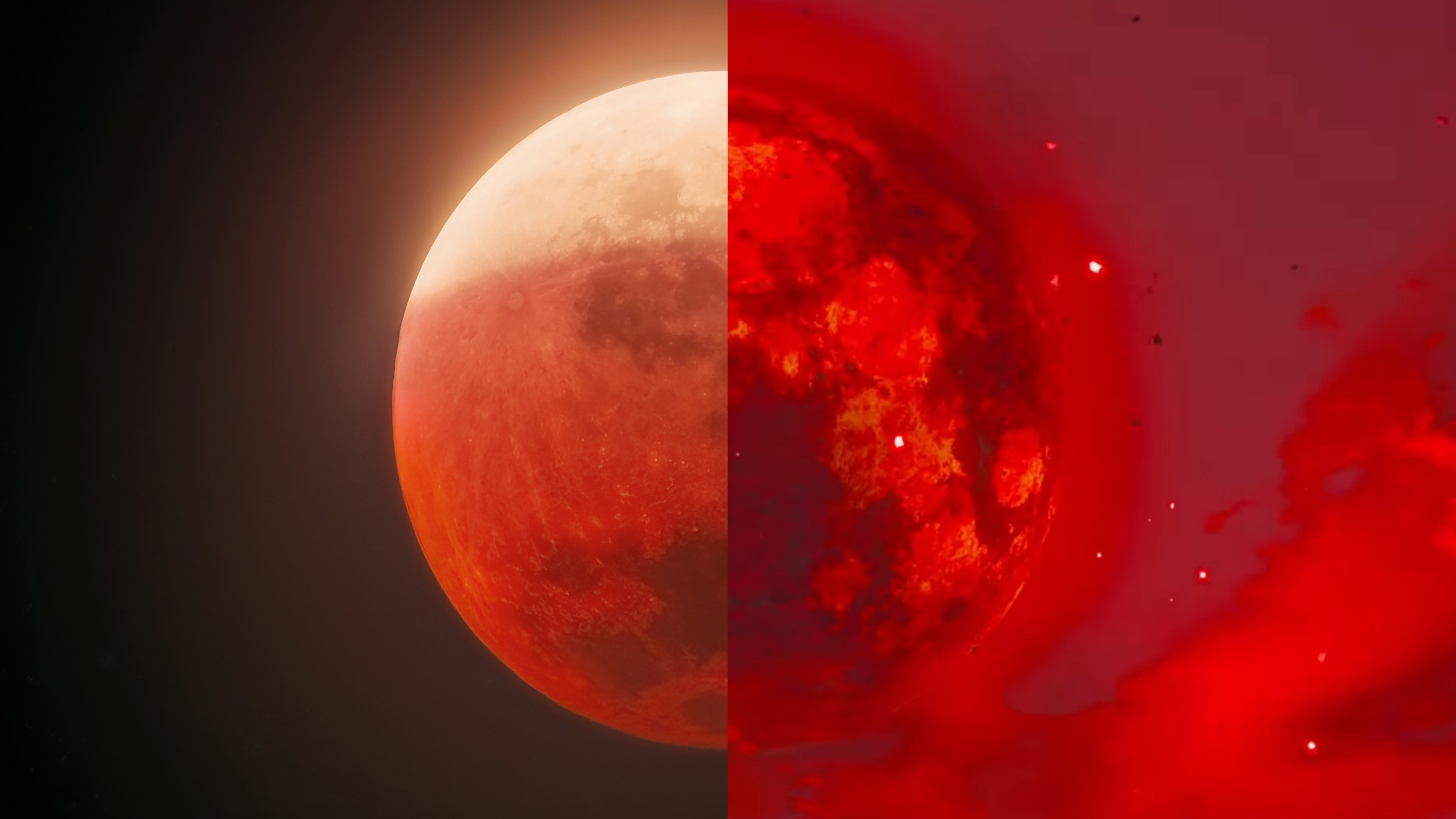China's Tianwen-1 Mars mission wins international space award
The mission carried out a historic first-ever combined orbiting, landing and roving in a single launch.

Breaking space news, the latest updates on rocket launches, skywatching events and more!
You are now subscribed
Your newsletter sign-up was successful
Want to add more newsletters?
China's Tianwen 1 Mars mission has been awarded one of the spaceflight world's most prestigious awards.
The Tianwen 1 spacecraft lifted off from Wenchang spaceport on July 23, 2020 and entered Mars orbit in February 2021. The mission's solar-powered Zhurong rover then successfully landed in the Red Planet's Utopia Planitia plain in May that year.
The mission carried out a historic first-ever combined orbiting, landing and roving in a single launch, earning the mission the International Astronautical Federation's annual space achievement award on Sunday (Sept. 18) during the 73rd International Astronautical Congress (IAC) in Paris.
Related: The latest news about China's space program
International Astronautical Federation (IAF) President Pascale Ehrenfreund introduced the team behind the development of the spacecraft at a highlight lecture at this year's IAC.
Jilian Wang, vice president at the China Academy of Space Technology (CAST) that developed the spacecraft, presented an overview of the mission and outlined some of the major scientific achievements so far in a highlight lecture, including a global mapping of the Red Planet and a returning data offering evidence for an ancient Martian ocean.
Wang also noted visual highlights from the mission, including Mars orbit selfies and orbital insertion videos.
Breaking space news, the latest updates on rocket launches, skywatching events and more!
Tianwen 1 is continuing its extended science missions in Mars orbit, but down on the surface the Zhurong rover is currently hibernating to see out the winter in Mars's northern hemisphere.
The 530-pound (240 kilograms) solar-powered rover is currently expected to wake up and resume activities in December or January, when more solar energy reaches Mars, a mission team member said during a question and answer session.
China is also looking to follow up its Mars success with an ambitious mission to collect samples from Mars and deliver them to Earth. The mission is named Tianwen 3 and will involve a pair of Long March 5 launches — China's largest rocket — around 2028 to send landing and orbiter spacecraft to the Red Planet.
Before this, the country aims to conduct its first asteroid sample-return mission with Tianwen 2, launching around 2025.
The missions are also likely to be open to international cooperation. "We wish to partner with more space agencies, space companies, universities and all kinds of other entities," Wang said. "As always, international partners are welcome to join us."
Japan's Hayabusa2 team asteroid sample return mission won the award in 2021. China previously won the IAF award in 2020 for the Chang'e 4 landing on the far side of the moon.
Follow us on Twitter @Spacedotcom or on Facebook.

Andrew is a freelance space journalist with a focus on reporting on China's rapidly growing space sector. He began writing for Space.com in 2019 and writes for SpaceNews, IEEE Spectrum, National Geographic, Sky & Telescope, New Scientist and others. Andrew first caught the space bug when, as a youngster, he saw Voyager images of other worlds in our solar system for the first time. Away from space, Andrew enjoys trail running in the forests of Finland. You can follow him on Twitter @AJ_FI.
